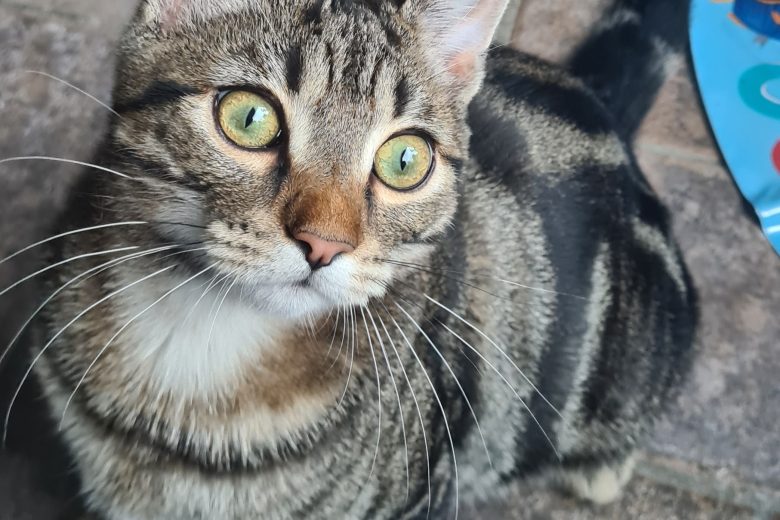From Kitten to King (or Queen): What Age Will My Cat Stop Growing?
Bringing a kitten into your home is a delightful experience, filled with tiny paws and boundless energy. But as you watch your furry friend grow, you might wonder: What age will my cat stop growing? This is a common question among cat owners, and understanding the feline growth cycle is essential for providing proper care.
The Rapid Growth of Kittenhood
Kittens experience a period of rapid growth during their first year of life. This phase is crucial for developing their bones, muscles, and organs.
- First 6 Months: This is the most intense growth period. Kittens gain weight quickly and develop their basic physical structure.
- 6-12 Months: Growth continues, but at a slower pace. Kittens are reaching their adult size but may still fill out.
So, What Age Will My Cat Stop Growing?
Generally, cats reach their full adult size between 12 and 18 months of age. However, several factors can influence this timeline.
- Breed: Certain breeds, such as Maine Coons, Ragdolls, and Norwegian Forest Cats, are known for their larger size and may continue to grow until they are 3-4 years old. Smaller breeds, like Siamese or Singapura, will mature faster.
- Genetics: Individual genetics play a significant role in determining a cat’s final size.
- Nutrition: A proper diet is essential for healthy growth. Kittens need a high-quality, kitten-specific food to support their development.
- Sex: Male cats tend to be larger than female cats.
- Neutering/Spaying: Neutering or spaying can influence a cat’s growth rate. Some studies suggest it may extend the growth period slightly, as hormones linked to sexual maturity also play a role in the closing of growth plates.
Understanding the Growth Stages
To better understand when your cat will stop growing, let’s look at the different growth stages:
- Neonatal Stage (0-2 Weeks): Kittens are entirely dependent on their mother. They gain weight rapidly and develop their senses.
- Transitional Stage (2-4 Weeks): Kittens start to explore their surroundings and develop their motor skills.
- Socialization Stage (4-12 Weeks): This is a critical period for socialization. Kittens learn how to interact with other cats and humans.
- Juvenile Stage (3-6 Months): Kittens are highly active and playful. They continue to grow rapidly and develop their muscle mass.
- Adolescent Stage (6-12 Months): Growth slows down, but kittens are still filling out. They are reaching their adult size and developing their adult personality.
- Adult Stage (1-7 Years): Cats are fully grown and mature. They maintain their weight and muscle mass.
- Senior Stage (7+ Years): Cats begin to show signs of aging. They may experience changes in weight, muscle mass, and activity levels.
Signs Your Cat Has Finished Growing
While the age range provides a general guideline, here are some signs that your cat has reached their full adult size:
- Consistent Weight: Their weight stabilizes and no longer increases significantly.
- Fully Developed Muscle Mass: Their body appears fully developed and filled out.
- Proportional Body Shape: Their body proportions are balanced and mature.
- Reaching Breed Standard: If you have a purebred cat, they should align with the breed’s size standards.
What to Do If You’re Concerned
If you’re concerned about your cat’s growth, consult with your veterinarian. They can assess your cat’s health and development and provide personalized advice.
- Regular Vet Checkups: Regular checkups are essential for monitoring your cat’s growth and health.
- Proper Nutrition: Ensure your cat is receiving a high-quality, age-appropriate diet.
- Monitor Weight and Body Condition: Keep track of your cat’s weight and body condition score.
Addressing Common Concerns
- “My cat is smaller than expected.” Genetics, breed, and nutrition can all influence a cat’s size. Consult your veterinarian to rule out any underlying health issues.
- “My cat is still growing after 18 months.” Some breeds, like Maine Coons, grow for longer periods.
- “What age will my cat stop growing?” While most cats stop growing by 18 months, there are always exceptions.
The Importance of a Healthy Lifestyle
Regardless of when your cat stops growing, providing a healthy lifestyle is crucial for their well-being.
- Balanced Diet: Feed your cat a high-quality, age-appropriate diet.
- Regular Exercise: Engage in daily playtime to keep your cat active and healthy.
- Mental Stimulation: Provide toys and enrichment activities to keep your cat mentally stimulated.
- Regular Vet Care: Schedule regular checkups to monitor your cat’s health.
Conclusion
Understanding the feline growth cycle and knowing what age will my cat stop growing? can help you provide proper care for your furry friend. While most cats reach their full adult size between 12 and 18 months, several factors can influence this timeline. By providing a healthy lifestyle and consulting with your veterinarian, you can ensure your cat thrives at every stage of their life.
